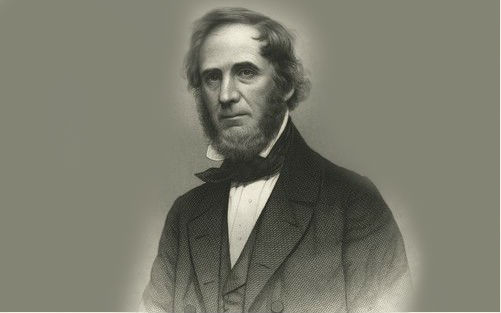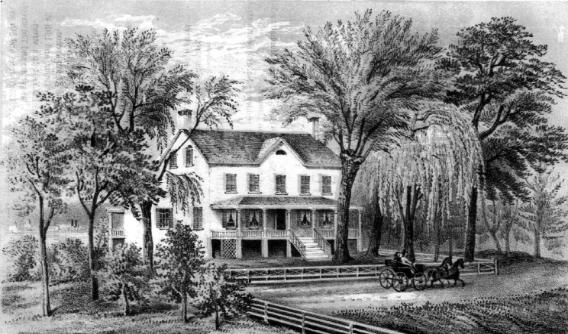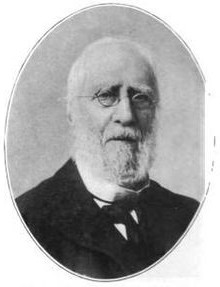 Harlem resident Daniel Fawcett Tiemann (January 9, 1805 – June 29, 1899) was Mayor of New York City from 1858 to 1860. He was a founding trustee of the Cooper Union for the Advancement of Science and Art.
Harlem resident Daniel Fawcett Tiemann (January 9, 1805 – June 29, 1899) was Mayor of New York City from 1858 to 1860. He was a founding trustee of the Cooper Union for the Advancement of Science and Art.
Tiemann was an industrialist, who lived in Manhattanville a Quaker community in Harlem where he owned D.F. Tiemann & Company Paint & Color Works which manufactured pigments and paints.
Tiemann was an industrialist, who lived in Manhattanville a Quaker community in Harlem where he owned D.F. Tiemann & Company Paint & Color Works which manufactured pigments and paints. This business had been started originally in 1804 by his father, I. Anthony Tiemann, with his brother, Julius William Tiemann, and Nicholas Stippel. His father retired from the business in 1839. The Tiemann laboratory and factory was originally located on 23rd Street and Fourth Avenue in New York City, near Madison Square Park, later relocating uptown to Manhattanville, Harlem in 1832.
Here’s print of the Tiemann family home around 120th – 123rd Streets near Bloomingdale Road (later Broadway) in Manhattanville, West Harlem, 1850’s:
He was educated in a private seminary and at age thirteen began an apprenticeship in the drugstore of H.M. Schiefflin & Co., on Pearl Street, until 1824, when he joined his father’s company. He became a partner in the company in 1826.
D.F. Tiemann was nephew-in-law of Peter Cooper, the American industrialist and inventor. In 1826, he had married Martha Clowes, Cooper’s niece, and they had three sons and three daughters. Tiemann Place, in the New York City borough of Manhattan, is named for him.
Notably, Edward Leslie Molineux, later to be both a Union general and the father of convicted (and famously acquited) 19th century murderer Roland Molineux, was a clerk in Tiemann’s firm and later a close political associate.
Tiemann had his eyes quite literally set on City Hall even at a early age. “I saw them building the present City Hall and we all thought that it was too far away from the business centre,” he once recollected. Young Tiemann frequently reminsced of his glorious youth, skating on Collect Pond and later fishing in the newly dug canal.
His paternal uncle, Julius William Tiemann, was one of the founding partners in the D.F. Tiemann company, and father of Hermann Newell Tiemann (1863–1957), who was a commercial photographer in New York City.
His greatest claim to fame, however, was as one of the first voices that traveled the newly laid Atlantic cable, which connected North America to Europe for the very first time.
 His greatest claim to fame, however, was as one of the first voices that traveled the newly laid Atlantic cable, which connected North America to Europe for the very first time. “Mayor Tiemann to the Lord Mayor of London. Enthusiastic Celebraton of the Event of the Age. A UNIVERSAL JUBILEE. NEW-YORK IN A BLAZE. Grand Exhibition of Fireworks in the Park,” boasted the NY Times headline.
His greatest claim to fame, however, was as one of the first voices that traveled the newly laid Atlantic cable, which connected North America to Europe for the very first time. “Mayor Tiemann to the Lord Mayor of London. Enthusiastic Celebraton of the Event of the Age. A UNIVERSAL JUBILEE. NEW-YORK IN A BLAZE. Grand Exhibition of Fireworks in the Park,” boasted the NY Times headline.
Tiemann was a member of the New York State Senate (8th D.) in 1872 and 1873.
He died on June 29, 1899.
Become a Harlem Insider!
By submitting this form, you are consenting to receive marketing emails from: . You can revoke your consent to receive emails at any time by using the SafeUnsubscribe® link, found at the bottom of every email. Emails are serviced by Constant Contact









